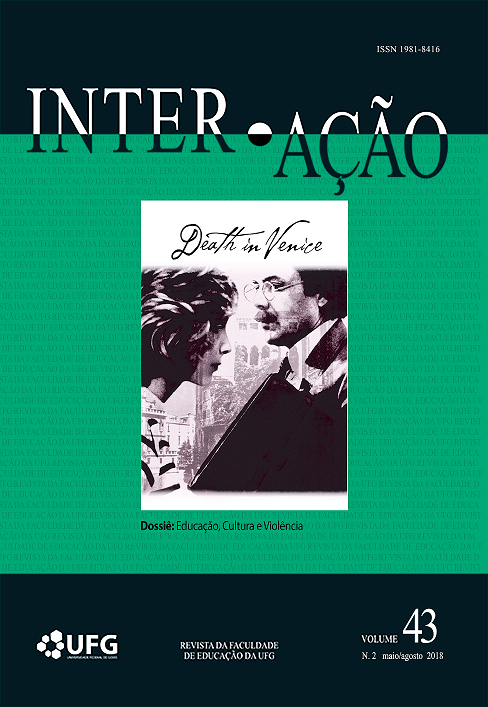Os discursos e os dilemas da formação estética entre emancipação e barbárie
DOI:
https://doi.org/10.5216/ia.v43i2.52466Abstract
O presente artigo objetiva uma discussão sobre as contribuições das narrativas verbais em prosa e não verbais na formação de sujeitos em seu sentido estético e transcorre pela reflexão sobre os processos identificatórios e societários que sofrem interferências da indústria cultural, ancorada nos seguintes autores da teoria crítica da sociedade Theodor Adorno [1903-1969] e Max Horkheimer [1895-1973], considerando a relação entre universal e particular, teoria e prática, forma e conteúdo, sujeito e objeto como procedimento metodológico da dialética negativa. Destacam-se neste texto os fenômenos que incidem sobre as (im)possibilidades de os sujeitos realizarem a experiência da reflexão no sentido de investigar e apresentar as condições que legitimam as narrativas com fins à emancipação e à barbárie.
Downloads
Published
Versions
- 2026-02-02 (2)
- 2018-12-14 (1)
How to Cite
Issue
Section
License
Copyright (c) 2018 Inter Ação

This work is licensed under a Creative Commons Attribution-NonCommercial 4.0 International License.
Inter-Ação uses the Creative Commons Attribution 4.0 License for Open Access Journals (Open Archives Initiative - OAI) as the basis for the transfer of rights. Open access means making documents available on the Internet free of charge, so that users can read, download, copy, distribute, print, search, or link to the full text of documents, process them for indexing, use them as input data for software programs, or use them for any other lawful purpose, without financial, legal, or technical barriers.
Authors publishing in this journal agree to the following conditions:
1) Authors retain copyright and grant the journal the right of first publication, with the work simultaneously licensed under the Creative Commons Attribution License, which permits redistribution of the work with attribution and first publication in this journal.
2) Authors are permitted to enter into additional, separate agreements for non-exclusive distribution of the version of the work published in this journal (e.g., for publication in an institutional repository or as a book chapter), with attribution and first publication in this journal.
3) Authors are permitted and encouraged to publish and distribute their work online (e.g. in institutional repositories or on their home page) at any time before or during the editorial process, as this may generate productive changes as well as increase the impact and citation of the published work.















